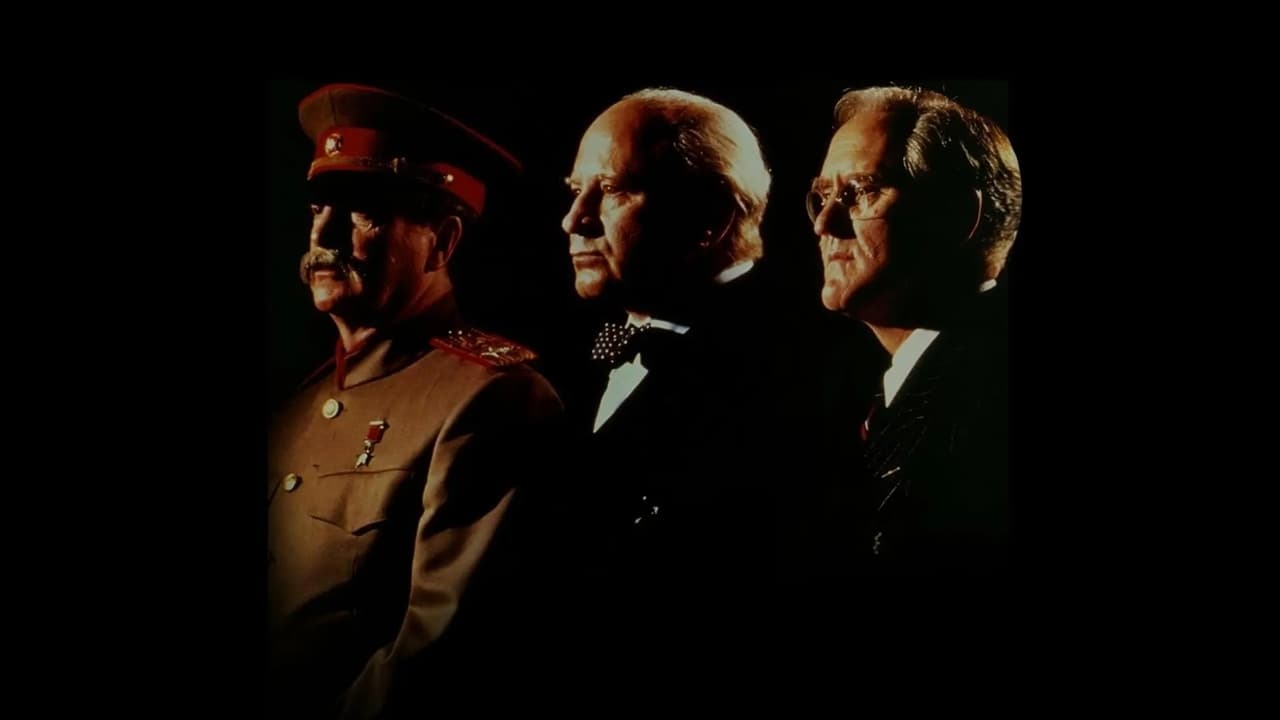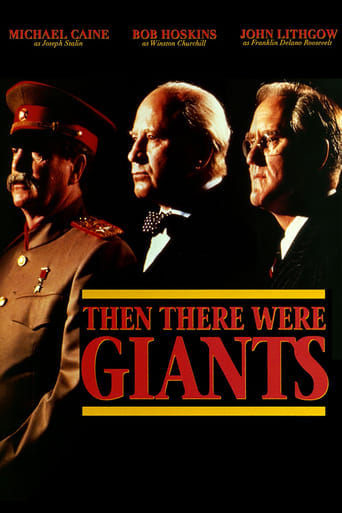

This three-hour miniseries is a bit of an acquired taste, so if I warn you of what you're getting into, you'll be in a better position to appreciate it. First of all, it's extremely wordy. David W. Rintels's script is well-researched, but it feels like he's written a play rather than a teleplay. With exception to the real-life war footage that's shown—and that could be projected onto a backdrop onstage—the entire movie feels like a taped live theatrical performance. Secondly, it was written in a very unusual style: the three lead characters are in completely separate environments, but they have conversations with each other in the same scene. For the majority of the film, the screen is split in halves or thirds, showing the characters speaking in a dialogue as if they're in the same room, rather than separate countries. Sometimes it feels a little jarring or strange, but if you imagine you're watching a play and the stage is separated into thirds and lit up in accordance to who's talking, it's much more entertaining. And hats off to the editor, John A. Martinelli, who no doubt had his hands full! The film starts in 1941, months before Pearl Harbor, and follows the involvements and interactions of Winston Churchill, Franklin Delano Roosevelt, and Joseph Stalin through the Tehran Conference in 1943. John Lithgow plays FDR, and while he looks very much like the president, he still sounds like himself. Bob Hoskins, on the other hand, is just the opposite. He doesn't look a thing like Churchill, but if you close your eyes, he sounds exactly like him! With Michael Caine as Joseph Stalin, you get the best of both worlds; not only is his appearance picture-perfect, but he puts on a surprisingly good Russian accent. The performances are very fun to watch, so even if you can't make it through the entire three-hour running time, at least watch a half hour of it to appreciate the acting.
... View MoreFilm historic rep-rending quasi textually letters and text of this time. Film courageous also in this time of war against Staline. Film historic rep-rending quasi textually letters and text of this time. Film courageous also in this time of war against Staline. Film historic rep-rending quasi textually letters and text of this time. Film courageous also in this time of war against Staline. Film historic rep-rending quasi textually letters and text of this time. Film courageous also in this time of war against Staline. Film historic rep-rending quasi textually letters and text of this time. Film courageous also in this time of war against Staline. Film historic rep-rending quasi textually letters and text of this time. Film courageous also in this time of war against Staline.
... View MoreKeep your children away from this sorry production, lest they be put off WWII history forever.The three principals are too well known to play the parts in this particular production. Their twisted make-up and sometimes dreary imitations of the famous personages take attention away from the central heart of the story, which is (or should be) the evolving relationships of three countries and leaders.This IDEA was interesting, but the execution becomes dreary in the long run. It should have been kept to under ninety minutes. Instead of a shorter, punchier piece this becomes a rambling mess.The idea that this is a proper representation of history can easily be challenged. The newsreel footage does not adequately contextualize the diplomatic exchanges between the three leaders of that war.For hard core WWII history buffs only.
... View MoreDubbed "Then There Were Giants" on cable, this made-for-tv two part film spends three hours presenting a theatrical digest of the communication which ostensibly took place between FDR, Churchill, and Stalin during WWII. Against a backdrop of file footage and the various sets required for conferences (Teheran, Yalta, etc.), the trio of heads-of-state build complex relationships of diplomacy as they map out plans for D-Day, the UN, and more. Lithgow, Hoskins, and Caine turn in excellent performances in this sterling characterization of the men who occasioned some of the 20th centuries most momentous events. Great stuff for WWII history buffs.
... View More